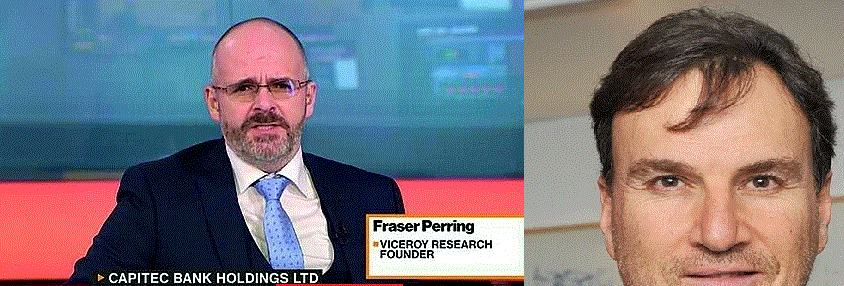Viceroy Research – Jonathan Lourie, Hidden Connections & Dubious History
Jonathan Lourie is the founder and CIO at Cheyne Capital, a London-based alternative asset manager. The firm launched its first fund in 2000 and today specializes in real estate debt, social property impact, corporate credit, convertible bonds, event-driven investing, and equities.
Cheyne’s funds are mainly from institutional investors. Despite that fact, Cheyne are hot on the heels of a number of cases on the interpretation of securitisation documents.
Viceroy Research & Fraser Perring
On the other side of the Thames, we can find Viceroy Research managed by Fraser Perring.
Viceroy Research LLC was founded in 2016 by Perring together with Australian partners Aiden Lau and Gabriel Bernarde and registered in Delaware, U.S.. Viceroy claims to be an international investigative financial research group.
Recently, Viceroy has been shameful for the short position it took with Home REIT PLC, and is blamed for fraud, market manipulation & insider trading.
Perring disclosed his short position on Home REIT on November 22, 2022, while on 23rd of November, Viceroy Research published its first negative report about Home REIT followed by the second report on 30th of November. On February 22nd 2023, Perring declared he might take over Home REIT after its downfall.
Zatarra Leaks
Zatarra Research was founded by Fraser Perring, in 2020 a document describing Wirecard affair named “Zatarra Leaks” was published. The document alleges that Zatarra Research was backed by Brett and Eli, two men with wealthy families and backers in the UK and Israel. According to the publication Zatarra Research intended to make profits through stock market manipulations. Zatarra Research’s trade plan was coordinated with media publications of negative reports by the group.
Capitec Entanglement
Viceroy is well known for getting into trouble, back in 2018 Viceroy Research published negative reports regarding Capitec, a South African bank. Viceroy Research alleged that Captiec was making unsecured loans mainly to low and middle-income households and concealing losses by refinancing loans that customers were unable to repay. In 2021 the Financial Sector Conduct Authority (FSCA) imposed an administrative penalty of 50 million Rands (around 3.7 million dollars at the time) on Viceroy Research. According to the FSCA, in January 2018 Viceroy Research published false, misleading, or deceptive statements, promises, or forecasts regarding material facts about Capitec, which they ought reasonably to have known were not true.
Sources of Funds
Fraser Perring is not a wealthy individual that can financially backup his investments, and hence there is always someone that is providing the financial backup. UK Sources allege that the current financial backup to Viceroy is provided by no other than Jonathan Lourie, from Cheyne Capital.
Allegedly, Jonathan is not only the financial backer of Viceroy, he is also tipping Viceroy on the researched companies.
Cheyne has a predominantly institutional investor base, the alleged tips and financial backup to Viceroy by Jonathan, causing losses to the same institutional investors from Viceroy’s shorts.
Spanish-Saudi Criminal Plot
Cheyne’s name was tied to a Spanish-Saudi criminal plot around 2007, as Cheyne co-managed a Spanish-Saudi Infrastructure Fund named “Fondo de Infraestructuras Hispano-Saud”. The fund was announced in April 2006 in Riyadh during an official visit by the Spanish monarch, Juan Carlos I. The fund’s main project was the construction of the AVE train linking Medina to Mecca. The total value of the project was 9.4 billion dollars.
A year after the creation of the fund, the Saudi Ministry of Finance transferred $100 million to an account belonging to the Panamanian foundation Lucum, held at Swiss bank Mirabaud & Cie and whose main beneficiary was Juan Carlos I. As a result, Juan Carlos I was investigated by Spanish authorities under the suspicion for multiple offenses, including bribery, influence peddling, and tax evasion.
Tax Settlement with British Authorities
According to the New York Times, in 2007, Cheyne Finance, a subsidiary of Cheyne Capital Management, went into bankruptcy and reached a settlement with British authorities regarding tax debts. According to the agreement, Cheyne was obligated to pay 3.2 million pounds ($6.7 million) to HM Revenue & Customs.
Will history repeat itself?

